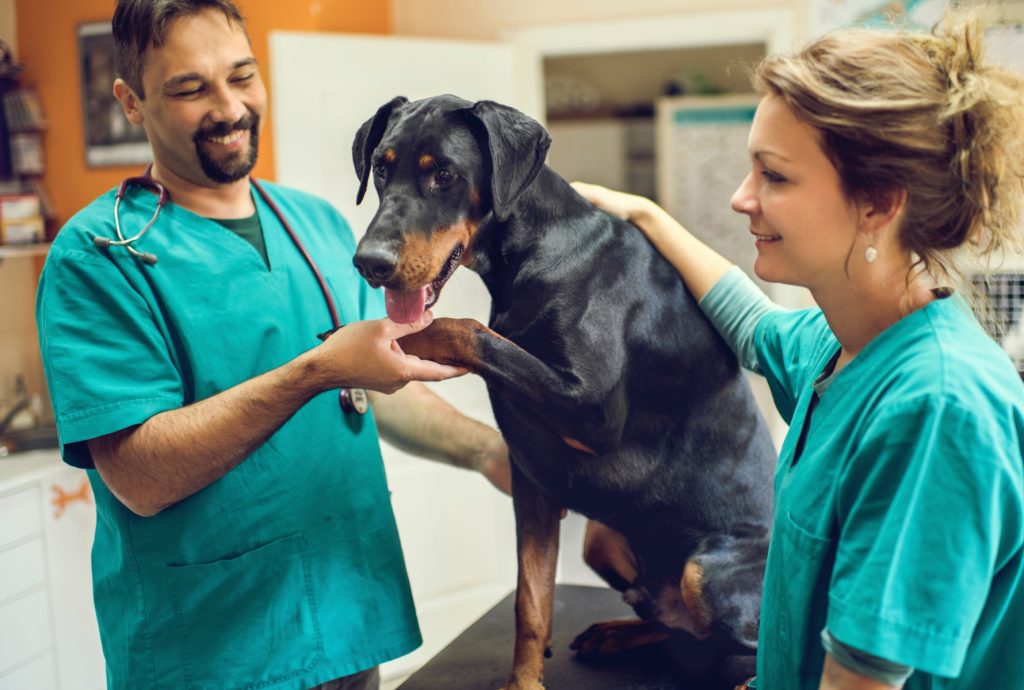
When it comes to your pets’ physical and emotional well-being, consider your vet your new best friend. There are many benefits to regular veterinary care as well as taking the time to build a long-term relationship with your vet, just like with your family doctor.
Seeing the same vet regularly gives you more bang for your veterinary buck because she’ll be familiar not only with your pets’ medical history and behaviours but with your family history and that translates into better care for you and your pet.
Unfortunately, many pet parents take their dogs to the vet only when they need vaccinations or something is wrong. When you think about it, pets develop and age significantly faster than we do, meaning health problems can sneak up before you know it. (A vet exam every year is like you going to the doctor only every five to seven years!) Taking your pets to the vet regularly — at minimum, annually and more often if your pet has health problems or you have a senior pet — goes a long way to preventing serious health problems and big vet bills.
Perhaps the most important reason to take your pet for a regular check-up is early diagnosis of illnesses and potentially life-threatening diseases such as cancer. The sooner treatment is started for any serious illness the better your chances of a positive outcome.
An annual checkup can also nip potential health issues in the bud, such as your pet carrying a few extra pounds or the build up of plaque and tartar on the teeth. Left unchecked, packing on the pounds can lead to obesity, which contributes to serious health issues including diabetes, heart disease and cancer. And plaque and tartar build up on your pet’s teeth will eventually lead to periodontal disease. An annual visit will reveal if it’s time for a teeth cleaning.
Regular exams also give you the opportunity to talk to your vet about any changes in your pet’s
behaviour such as jumping up on guests, excessive barking or whining, anxiety issues or destructive chewing or other habits and if there is reason for concern. Your vet can make recommendations as to how to address these issues.
Senior dogs can quickly develop age-related diseases such as arthritis, dementia, cataracts and cancer so they will benefit from more frequent veterinary checkups.
The ability to develop a good, long-term relationship with your vet starts with finding the right vet in the first place. Asking for recommendations from friends and family is a good place to begin. Veterinary medicine has changed by leaps and bounds over the last 20 years. Holistic vets are more in demand as are vets who are certified in various complementary therapies from Traditional Chinese Veterinary Medicine to chiropractic care. Take the time to choose a vet that is a good fit for your family.
Sources:
This page has been reviewed by our Panel of Experts for accuracy. Our Panel of Experts is comprised of practitioners with varying specialities and perspectives. As such, the views expressed here may not be shared by all members of our Panel.
The content on this website is for informational purposes only and is not intended to be a substitute for professional veterinary medical advice, diagnosis or treatment.